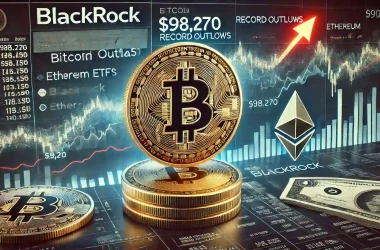Hong Kong legislator Wu Jiexhuang has proposed using the city’s “one country, two systems” framework to include Bitcoin in its national reserves. This would enhance Hong Kong’s financial security.
Exploring the Impact of Bitcoin ETFs
Speaking with Wen Wei Po, a state-owned newspaper, Jiexhuang suggested that Hong Kong should first study the effects of U.S.-based Bitcoin exchange-traded funds (ETFs) on the market. This could serve as an initial step toward adding Bitcoin to the reserves.
Global Trends in Bitcoin Adoption
Jiexhuang pointed to nations like El Salvador and Bhutan, which have incorporated Bitcoin into their reserves. He also referenced the growing global acceptance of the cryptocurrency. Additionally, U.S. President-elect Donald Trump has proposed classifying Bitcoin as a strategic reserve asset.
Bitcoin ETFs as a Strategic Step for Hong Kong
Jiexhuang urged Hong Kong to consider adding Bitcoin to ETFs. He believes this step could lead to larger Bitcoin holdings in the future. It would attract talent and investment, strengthen financial stability, and reduce market disruptions caused by Bitcoin’s adoption.
Securing a Competitive Advantage for Hong Kong
Taking early action would give Hong Kong a competitive edge in the global financial market. Jiexhuang explained that including Bitcoin in national reserves would stabilize its value. As more countries adopt it, Bitcoin would reduce reliance on traditional assets.
“If major economic powers include Bitcoin in their strategic reserves, its value will stabilize. This will encourage others to follow suit,” Jiexhuang said. “This could lead to a reduction in traditional asset holdings, impacting fiscal reserves tied to those assets.”
Hong Kong’s Cryptocurrency Regulation Plans
Hong Kong’s Financial Services and the Treasury Bureau plans to regulate cryptocurrencies under the “same business, same risks, same rules” principle. China, which has 190,000 Bitcoin through confiscations, ranks second in Bitcoin reserves, after the U.S.
In mid-2024, legislator Johnny Ng announced plans to explore Bitcoin’s potential role in Hong Kong’s reserves.
Singapore’s Crypto Progress and Hong Kong’s Lag
Meanwhile, Singapore has issued 13 cryptocurrency licenses in the past year. These went to major players like OKX, Upbit, Anchorage, BitGo, and GSR. Hong Kong, however, has issued only seven licenses, with four restricted approvals in December.
Challenges for Hong Kong’s Crypto Market
Hong Kong’s ambitions have faced regulatory challenges. The city’s slow approval process has made it less attractive to crypto firms. Exchanges like OKX and Bybit have withdrawn their applications, citing these issues.
Hong Kong’s regulations limit trading to highly liquid cryptocurrencies, such as Bitcoin and Ether. This excludes smaller altcoins, which offer broader market opportunities. Additionally, China’s blanket ban on crypto trading adds challenges for Hong Kong.
Criticism of Hong Kong’s Licensing System
A member of Hong Kong’s Legislative Council recently criticized the city’s cryptocurrency licensing system. The lawmaker said the system harms market confidence. The Hong Kong Securities and Futures Commission (SFC) requires virtual asset trading platforms to ensure they don’t allow mainland Chinese users
The post Hong Kong Legislator Proposes Adding Bitcoin to National Reserves for Financial Security appeared first on Cryptonews.















